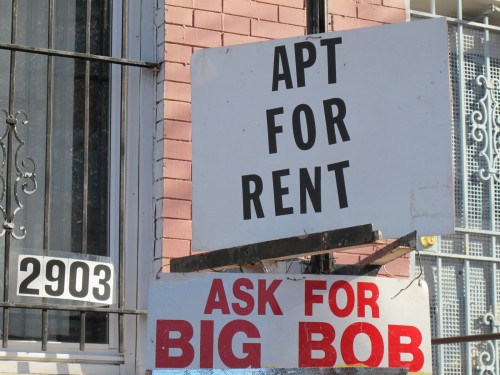
From the office of the DC Attorney General:
“Attorney General Brian L. Schwalb today issued the below consumer alert warning DC renters about rental scams and offering tips on what to look out for to avoid being scammed:
Are you a new renter looking online for a place to live in DC? The District is a great place to live and work, but finding housing can be difficult. Recently, there has been an increase in rental scams targeting out-of-town renters, short-term renters, and students. If you are looking for a new place to live, or know someone who is, you need to be alert.
Here’s how these scams work:
- Scammers pretending to be landlords or property management companies post fake ads for houses or apartments that they do not own or are not actually renting out.
- Scammers then trick potential renters into sending them money – such as application fees or security deposits – through non-refundable methods.
- Then, the scammers disappear with the money.
These scams are convincing and can be tricky to spot. Scammers often use the names of well-known property management companies and use photos taken from legitimate real estate ads or listings. To avoid these scams, it’s important to learn the warning signs, share the information with others, and know what to do if you think you or someone else is being scammed.
Consumer Tips: Red Flags for Fake Listings & Security Deposit Scams
Finding affordable housing can be stressful, and scammers try to take advantage of the pressure many renters feel. For example, scammers may try to trick you by listing prices that seem too good to be true, pressure you into feeling forced to make a quick decision, or only accept non-refundable payment methods for things like application fees, security deposits, or rental fees. Examples of non-refundable payment methods include wire transfers, Zelle, or a cashier’s check.
Follow the steps below before sending any money.
- Don’t send money without seeing the property first! If possible, avoid sending an application fee or a security deposit before seeing the rental property in person. This can be challenging for renters coming from out-of-town or for international renters. If you cannot see the property in person, there are other ways to avoid being scammed:
-
- See if a friend, family member, or co-worker can visit the property in person for you.
-
- Ask the landlord to do a virtual tour of the property on a video call, FaceTime, or Skype. If the landlord refuses, this is a red flag.
-
- Search online to confirm the identity of the landlord. You also should verify that the property is actually for rent. Look for postings on websites like Redfin, Zillow, and Realtor.com. If you see inconsistencies between those sites or if a property is only available on Craigslist – that’s a red flag.
-
- Call the property management company and ask to speak to a supervisor. Confirm with the supervisor that the property is for rent.
-
- Google the property and look for any reports of dishonest or fake rentals.
-
- Do an internet search for both the landlord and the property to confirm both are real.
-
- The DC Office of Licensing and Consumer Protection’s (DLCP) SCOUT database has helpful information. You can search for a business by name, and SCOUT will indicate if the business is licensed. If the business is not licensed, do not do business with them!
- Don’t send money through payment methods that cannot be stopped or refunded!
-
- Be very careful about sending any money through methods that cannot be stopped, tracked, or refunded. Once money is sent using a mobile payment app (Zelle, Venmo, Cash App, etc.), wire transfer, or cashier’s check, that money is gone. It cannot be recovered.
-
- It is safer to pay an application fee or security deposit with a personal check or a credit card.
- It is safer to pay an application fee or security deposit with a personal check or a credit card.
- Don’t rush to pay rental fees until you are sure it’s not a scam! Do not feel pressure to send rental fees, like an application fee or a security deposit, before you are sure that the property is actually for rent.
-
- Make sure that you are sending the money to the actual property manager or owner. Use the DLCP SCOUT database to double check who owns or manages the property. If the property manager or owner refuses to answer your questions, this is a red flag! No one should try to force you to send money.
-
- Take time to talk to someone you trust about the rental offer. If you are a student, someone in your school’s Office of Student Affairs/Services Review may be able to help.
-
- If needed, talk to a lawyer. You may be able to get free legal advice by calling the DC Bar Legal Information Help Line at (202) 626 3499.
- Don’t pay a security deposit until a lease is signed! DC law has strict requirements for security deposits. Security deposit amounts, terms, and conditions must be clearly stated in a lease or other agreement. Security deposits cannot cost more than one month of rent. Security deposits also can only be charged once.
-
- Do not pay a security deposit until a lease agreement is signed by both you and the landlord. Make sure the security deposit amount is written in the lease.
- Look out for lease agreements that contain blank spaces or unclear terms. If the landlord tells you that they will complete the lease after you send the security deposit, this is a red flag.
-
- Do not pay a security deposit that is more than the cost of one month’s rent. Under DC law, landlords may only charge security deposits less than or equal to one month’s rent.
-
- Never pay a security deposit more than once for a single property.
-
- You can also ask for a security deposit receipt. This type of receipt must state the amount of the security deposit and any related payment terms and conditions.
Consumer Resources – Get Free Help!
If you think you have been the victim of a scam, or want to inform authorities about a scam you have encountered:
- Call OAG’s Consumer Protection Hotline at (202) 442-9828. You also can submit a complaint by email at [email protected], or online at https://oag.dc.gov/consumer-
protection/submit-consumer- complaint. - File a business complaint with the D.C. Department of Licensing and Consumer Protection.”
Recent Stories

Good news, D.C. area. You can save money on your next home cleaning with Well-Paid Maids. It’s easy!
We offer a discount when you set up recurring cleans — and the discounts just increased this week!
For weekly cleans, get $30 off each cleaning.

Potomac Harmony is Back! Following a gap year of competing, then virtual rehearsals during the pandemic, followed by the well-earned retirement of our long-term director, a year of a director search, Potomac Harmony hit the regional contest stage in Concord, North Carolina in March for the first time since 2018! It was exhilarating, reaffirming, and rewarding!
The chorus hit all of its goals, the biggest of which was to have fun and sing our best on contest stage — we did both! Because we earned a score over 400 points, our new Director, Allison Lynskey, was awarded the Novice Director award, photo above. Additionally, one of our charter members, Jackie Bottash, was nominated for and honored with the Leadership Excellence award. It was a celebratory weekend!
What’s next? So much! We now look forward to upcoming performances, growing our membership, and expanding our musical product with new arrangements and an education component each week. It’s an exciting time to be part of this ever-growing ensemble!
St Mary Armenian Church Annual Spring Food Festival
Come hungry and leave happy! Experience culture, community, and cuisine all in one place. See you at the festival!!!!
Comedy Cabaret
Kick up your heels at Bad Medicine’s COMEDY CABARET extravaganza at the DC Improv Comedy Club on Tuesday, May 21st. Revel in the sights and sounds of this entertaining musical revue, with songs, dance and sketch comedy that will have







